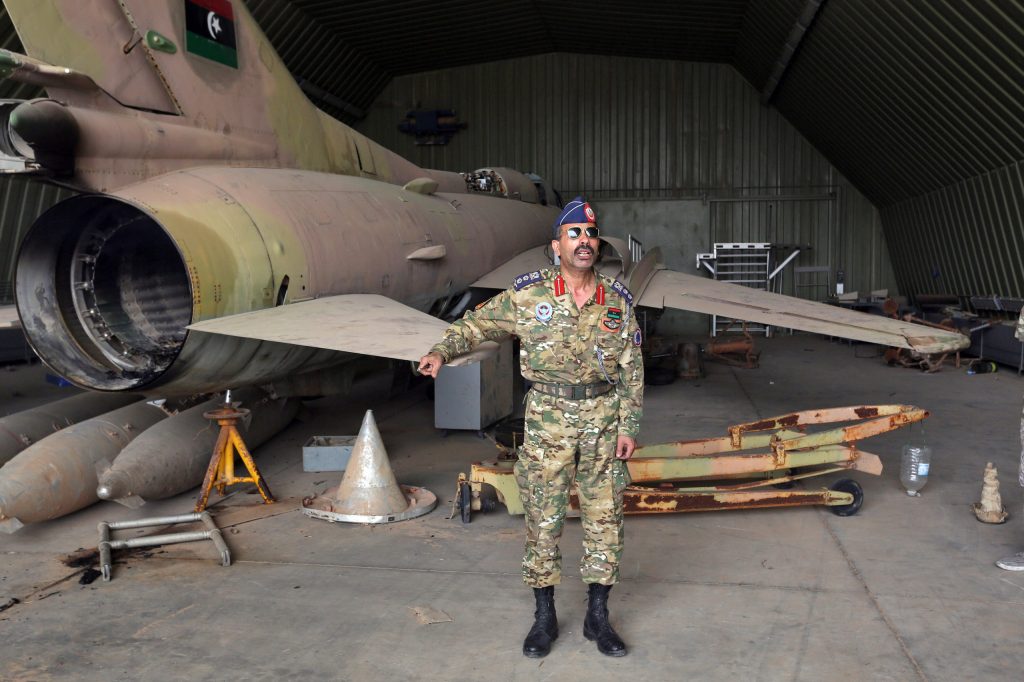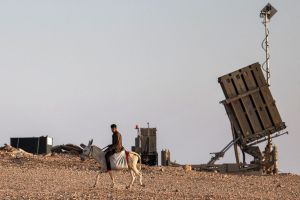The Libyan civil war has raged for almost a decade, but in the last year the conflict has escalated into a regional proxy war. This matters because Libya is a gateway for migrants coming to Europe and because whoever wins in Libya will emerge a powerful figure in the Middle East. Eastern Libya is run by Khalifa Haftar and his Libyan National Army. He is principally backed by the UAE, Egypt and Russia; and he appears to receive support from France, Saudi Arabia and Greece. The government in Tripoli is backed by Turkey and Qatar. Haftar seemed poised to take Tripoli in recent months, but his allies in Abu Dhabi, Cairo and Moscow have suffered setbacks. They have not been able to get Haftar over the line.
Libya is the Middle East’s most important proxy conflict today. Just read the differing pro-government media accounts from voices across the region, like those in the UAE and in Turkey that illustrate the country’s importance. Turkey calls Haftar a ‘warlord’, as the National in the UAE accuses Tripoli of arming ‘militias’ while playing up accounts of the Muslim Brotherhood controlling the Libyan capital.
On May 18, Government of the National Accord forces in Tripoli captured a strategic airbase from Haftar. They destroyed several Russian-made Pantsir air defense systems, according to satellite images and local accounts. Turkish Bayraktar drones are now competing with Chinese-made Wing Loong drones, supplied to Haftar’s forces, for control of the skies of Libya. The country is a testbed for drone and air defense technology.
While the world focused on conflicts in Yemen and Syria, Libya is where some of the Middle East’s most powerful countries are increasingly involved. With the pandemic shifting the international community’s focus inward, the conflict in Libya is escalating. This has ramifications because Libya is a conduit for migrants heading to Europe. It may also shift the balance of power between Russia, Turkey, Greece and the Gulf states.
Turkey entered Libya in November 2019. It signed a deal with Tripoli that gives Turkey a swath of claims over the Mediterranean; in response Ankara promised to send military aid, and drones and armored vehicles poured in. Ankara also hired thousands of poor Syrian rebels to go fight in Libya. This was classic cynicism from Turkey: use Syrians to fight on foreign battlefields, test armed drones, get energy deals, humiliate Egypt and the UAE, pressure Russia and frustrate Greece. For Turkey, it was a win-win-win-win situation. All Turkey had to do was prevent the Government of the National Accord in Tripoli from losing.
***
Get three months of The Spectator for just $9.99 — plus a Spectator Parker pen
***
For Egypt, Russia and the UAE, the Libyan civil war is more complex. The UAE and Saudi Arabia have already engaged in a conflict in Yemen against Iranian-backed Houthis. They have been fought to a standstill there. In recent years, they have watched as Turkey and Iran increased their role in Syria. To reclaim their historic influence, the Gulf states and Egypt sought to try to end the Libyan conflict. However, they were frustrated in attempts to get Haftar into Tripoli. Haftar was more successful years ago taking Benghazi from extremists and conquering oil fields. But Tripoli proved a bridge too far.
The Libyan conflict is an example of what happens when western governments walk away. Libya was a simmering civil war for years. An American ambassador was murdered in 2012 while the Islamic State briefly secured a foothold. As a transit point for African migrants, Europe has been concerned about Libya, primarily in terms of how to prevent unchecked migration. Now larger questions loom.
The export of drone technology and the implications of gas drilling deals off the coast have ramifications. Israel wants to build a pipeline with Greece to Europe, but this appears to intersect with the Turkish sea-grab off Libya. A ceasefire in Tripoli and discussions between all sides could tie together several regional conflicts at once. But none of the countries involved seem to want to talk. With Washington increasingly unwilling to play a leadership role in places like Libya, and a global pandemic distracting other countries, the results are a growing proxy conflict.
Libya appears emblematic of the future of international affairs, as proxy wars, armed drones and regional powers push forward when western countries step aside.
This article was originally published onThe Spectator’s UK website.


















